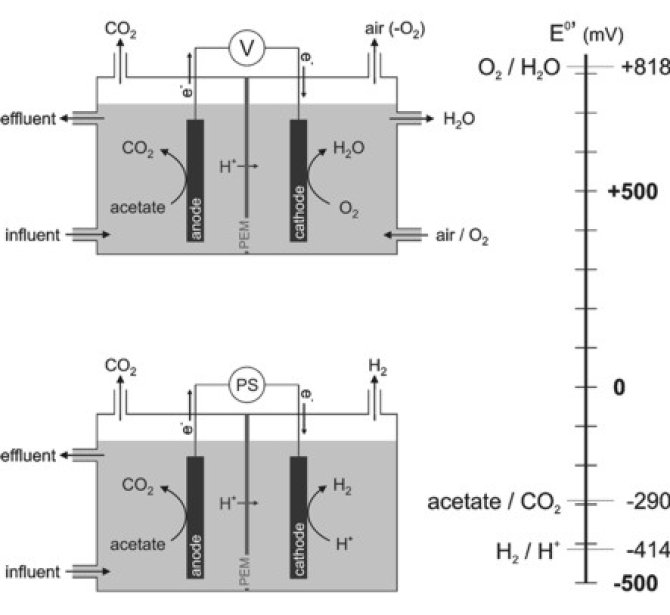Bioelectricity
In microbial fuel cells (MFCs) microorganisms conserve chemical energy as electricity. In these microbial fuel cells microorganisms use inert electrodes as terminal electron acceptor for growth on organic compounds.
By using molecular biological techniques we study which microorganisms are active at the cathode and the anode sides of the MFC. Also, we aim to get insight into the molecular mechanism of exocellular electron transfer. Several organic electron mediating compounds like quinones and riboflavin, have been described that can mediate exocellular electron transfer. Recently, research carried out in the US has suggested that redox proteins organized in so-called conductive nanowires may be involved in exocellular electron transfer. In microbial fuels cells electricity may also be used to drive reactions that are energetically difficult. One of these conversions is the electricity-mediated electrolysis of organic acids for the production of hydrogen (Figure).
